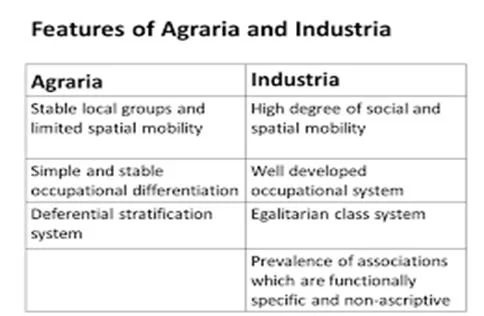Fred Riggs, who is known as the Father of Comparative Public Administration developed a typology in 1956-1957 named as ‘AGRARIA-TRANSITIA-INDUSTRIA. This model was fully developed in 1957.It reflects the features of two societies viz.Agrarian and Industrial societies.
Agrarian society is the condition of society where there is dominance of agricultural activities. It is mainly known for its various features like Ascriptive values, functionally diffuse pattern, limited spatial mobility, traditional patterns and norms ,etc. Riggs gave an example of Imperial China in this context.
Another extreme of this theory is an Industria society where there is existence of industrial activities. It focuses upon various features like Achievement norms, high degree of occupational differentiation, greater spatial mobility, modern pattern of society and so on. For this purpose Riggs gave an example of Erstwhile USA.

Transitia, the stage between both the societies, is nothing but a transforming society which remarks the stage / period of developing. It is consisted of elements of both agrarian & industrial society. Thus it is neither an undeveloped society nor a developed one. For eg: Indian administrative culture.
Riggs used the Structural-Functional Approach to describe this typology.
To criticize, this theory is too abstract & not fit to describe the administrative systems of the present world. But still occupies an important place in the study of CPA.
Author: RIDHI JAJOO



